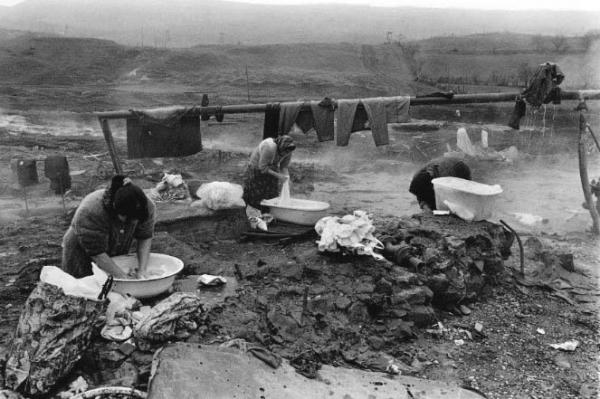In the prewar years under the Soviet Union, the socioeconomic and political situation in the Checheno-Ingushetia Republic was difficult. The mentality and society of Chechnya traditionally founded on egalitarianism and the priority of personal freedom, became a consequential force driving Chechnya into its division from the Soviet Union. Former mentioned diplomatic historian Trenin, states that as a result of their mentality, the Chechen’s essentially could not, and did not, create a sustainable political hierarchy that neighbouring republics had to various extents. (Trenin, Malashenko:2004). Lacking a sustainable structured society, the Chechen’s failed to, and made it difficult for them to maintain a discourse with neighbours –– such as Russia. Throughout the years 1964-91, the Chechen and Ingush became increasingly impoverished peoples. John Dunlop, accomplished historical author and journalist, states with a shared common opinion of former mentioned historian Tishkov, that the increasingly poverty-stricken society led some of their youth to drift into criminality, and others to emigrate to other parts of Russia. Dunlop quotes that by the mid 1980’s, unemployment in the Chechen-Ingush Republic had become chronic, and the republic was characterised by an incredibly high mortality rate in children and from infectious diseases. Education levels were also similarly, ‘strikingly low’. (Dunlop:1998) (Tishkov:2004). It is significant to note that the belief of complete independence was not purely emotional or nationalistic, according to US Lieutenant, and active participant in the Caucasian conflict, Robert Schaefer who mastered in Russian studies at Harvard. Schaefer states that the “Chechen’s, as a nation, also ardently believed that Chechnya would be better off economically as an independent state and had no need for any kind of shared economic sphere.” (Schaefer:2011:pg.111). Unfortunately, the rational preference of the population of the Chechen region to be fond of democratisation and to correct events against their people –– the Stalinist era deportation and consequent discrimination –– have been misused to fuel an anti-Russian sentiment and fuel a nationalist hysteria.

Women in the break-away republic of Chechnya wash clothes on the outskirts of Grozny from a hot water pipe. Most of the city’s residents were without hot water and electricity during the Soviet Era.
How the Fall of the USSR led to Chechen Declaration of Statehood